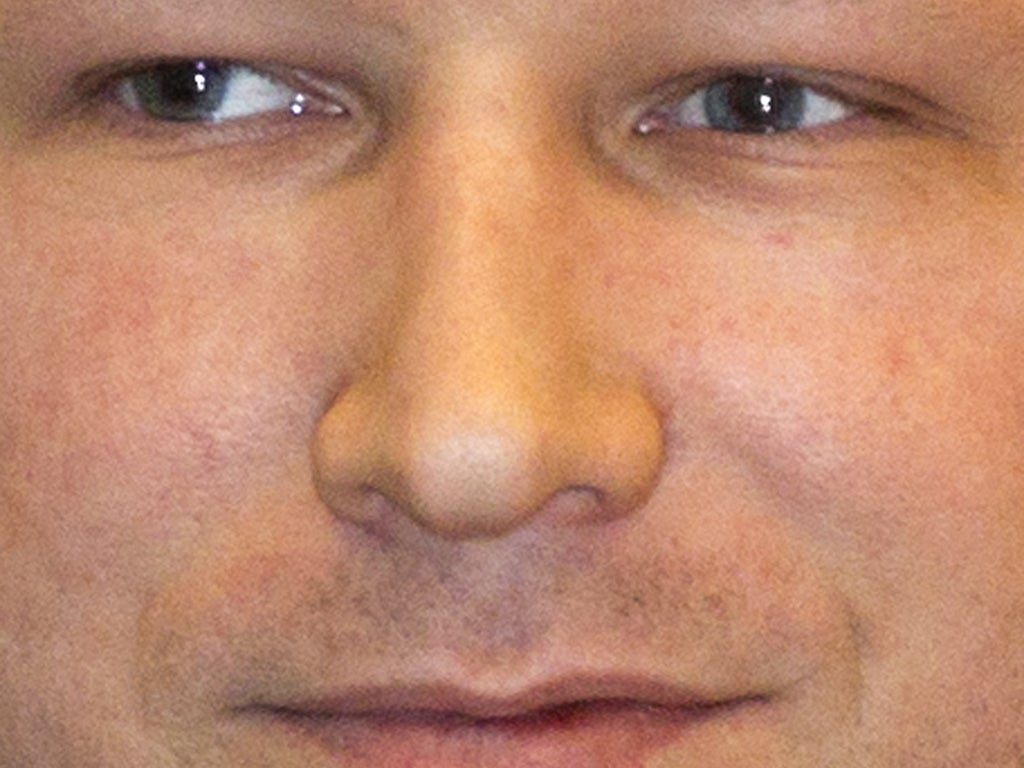Your support helps us to tell the story
From reproductive rights to climate change to Big Tech, The Independent is on the ground when the story is developing. Whether it's investigating the financials of Elon Musk's pro-Trump PAC or producing our latest documentary, 'The A Word', which shines a light on the American women fighting for reproductive rights, we know how important it is to parse out the facts from the messaging.
At such a critical moment in US history, we need reporters on the ground. Your donation allows us to keep sending journalists to speak to both sides of the story.
The Independent is trusted by Americans across the entire political spectrum. And unlike many other quality news outlets, we choose not to lock Americans out of our reporting and analysis with paywalls. We believe quality journalism should be available to everyone, paid for by those who can afford it.
Your support makes all the difference.They met for the first time on 19 February: Terje Tørrisen, the Norwegian psychiatrist given the task of assessing the sanity of a mass murderer, and Anders Behring Breivik, the man who today goes on trial for one of the most shocking crimes in European post-war history.
Breivik was well-mannered and co-operative, according to Mr Tørrisen: "My first impression was that he was a polite man. He was answering all of our questions and did whatever he could to make the process as smooth as possible."
Throughout the 24-hour-a-day observation Mr Tørrisen and the rest of his team were able to watch and analyse how the self-confessed mass murderer eats, sleeps and interacts with others. When Breivik sleeps alone in his cell – or spends time weight-training, or reading world history – the team has always been around him, scrutinising his behaviour for more than 200 hours, building up the most complete profile of Norway's worst-ever killer.
"He's not like a normal person," Mr Tørrisen told i, adding that Breivik has an extreme personality. "During conversations, he is friendly," Mr Tørrisen explained. He said Breivik spends a lot of time, as he has done during his handful of public appearances, talking about his own thoughts and political opinions. He "smiles every time he discovers himself in newspapers or on television," Mr Tørrisen said.
Breivik has told the psychiatrists and doctors he is "incredibly proud" of what he has done, and that "the operation was a major ego boost; in a way, I am probably a little attention-whore".
Last week, Mr Tørrisen and Agnar Aspås, the other analyst to assess Breivik's mental state, delivered a report about his mental health to the court in Oslo. The report was commissioned after an earlier assessment declared him insane. According to newspapers in Norway, the new report – still confidential – concludes that Breivik has a narcissistic and antisocial personality disorder, a diagnosis that has certain similarities with other psychopaths. It concludes, however, that he is mentally fit enough to face trial.
Most people who have met Breivik in prison say he seems happy, a person who wants to talk about his ideology like religious people talk about Jesus. On the one hand, he is an educated and polite man who hangs up the jackets of all his visitors, learns their names and questions their well-being. But he is also a heartless killer who discusses his mass murder as a formality; he blushes when he talks about his executions, doctors say.
Because of a lack of empathy for his victims the first forensic psychiatrists diagnosed Breivik with paranoid schizophrenia, and declared him to be criminally insane.
According to Dr Randi Rosenqvist, who has assessed Breivik, the mass murderer found it "funny" that he had been classified as being a schizophrenic. "I asked what he thought about the investigators' conclusions, and he answered almost in a humorous way that he 'didn't recognise himself at all'," Dr Rosenqvist wrote in her report.
She said that Breivik compared his new life in prison to being in a "kindergarten", where he can ring on a bell to get cigarettes.
But Breivik did not like the fact he had been declared insane. He wrote a 35-page letter to several newspapers, listing 200 points explaining why the diagnosis was wrong.
"I must honestly admit that this is the worst thing that could have happened to me. It is the ultimate humiliation. Sending a political activist to a mental hospital is more sadistic and crueller than killing him. It's a fate worse than death."
His defence lawyer Geir Lippestad said that Breivik was "very satisfied" when he heard the conclusions of the second examination.
But while psychiatrists and psychologists struggle to understand the personality of the man behind the attacks on Oslo and Utøya in July last year, people in Norway seem more interested in bringing him to court.
"The discussion around Breivik has been too concentrated around his mental state and not the right-wing extremist network that triggered and inspired him," Eivind Rindal, a survivor from Utøya said.
He hoped the trial, which starts today and is due to last 10 weeks, will herald the start of a debate about the dangers of extremism in Norway and Europe, and not spark more attention about Breivik's health.
"We might never understand him, but we are going to judge him," Mr Rindal said.

Join our commenting forum
Join thought-provoking conversations, follow other Independent readers and see their replies
Comments